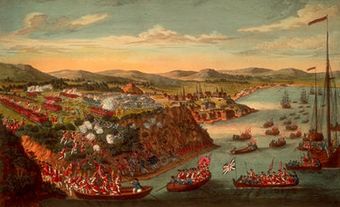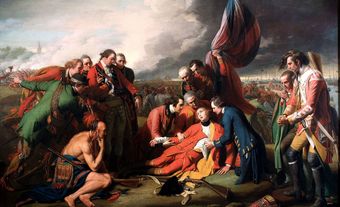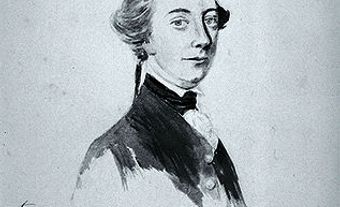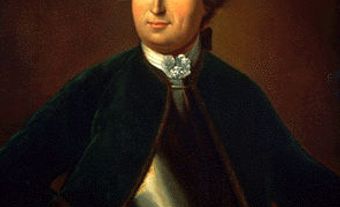The Battle of the Plains of Abraham took place on 13 September 1759. The Plains of Abraham are in Quebec City. It was fought between the French and their Indigenous allies against the British. The British won. Losing the battle was a major defeat for the French. Soon after, France lost all of Quebec. In 1763, France gave all of Canada to Britain. The era of New France was over. Until Confederation in 1867, Britain would control the colonies that became Canada. (See Confederation (Plain-Language Summary).)
(This article is a plain-language summary of the Battle of the Plains of Abraham. If you are interested in reading about this topic in more depth, please see our full-length entry, Battle of the Plains of Abraham.)

The Seven Years’ War
The Battle of the Plains of Abraham was an important battle that took place in the Seven Years’ War in North America. (See Seven Years’ War (Plain-Language Summary).) The British and the French were fighting each other all over the world. They both wanted to be the world’s most powerful imperial nation. The war began in 1756. At first, the French and their Indigenous allies won many victories. After a few years however, the British and their Indigenous allies were becoming stronger. In 1758, they took Louisburg. It is on Cape Breton Island. Then, they took other important areas in and around Quebec. As a result, Quebec City was easier to attack. Quebec City was the most important city in New France.
The Attack on Quebec City
The leader of the British forces was General James Wolfe. He commanded about 11,000 men. The French army had about 18,000 men. Approximately 11,000 were part of the Canadian militia. The others were regular soldiers and marines. There were also about 1,800 Indigenous troops. The leader of the French army was Louis-Joseph de Montcalm. In the summer of 1759, the British began to attack areas near Quebec City. For a time, Wolfe tried to find the best location to attack. He decided to land his forces a few kilometers from Quebec City. On 13 September, after defeating a small group of French soldiers and scaling cliffs, the British army had reached the Plains of Abraham.
General Montcalm attacked the British quickly. He hoped to stop the rest of the British army from reaching the Plains of Abraham. The British soldiers were very experienced and professional. Soon after the battle started General Wolfe was killed. General Montcalm was shot and died the day after. The British eventually won.
Legacy
Although the French and their Indigenous allies lost, they continued to fight for a few more years. One of the biggest battles occurred at a small town called Sainte-Foy. The British lost. The French then laid siege to Quebec City. They could not, however, take the city. Soon after the siege, the British began to reverse the tide of the war. In September 1760, they won their most important victory after the Battle of the Plains of Abraham. They defeated the French and their Indigenous allies in September 1760. This was the last major battle of the Seven Years’ War in North America.
In 1763, the French and British signed the Treaty of Paris. The French gave up all of Canada to Britain. Thanks to this treaty, Britain now controlled a vast empire in North America that included the 13 Colonies. In return for giving up Canada, the French were given the islands of Saint Pierre and Miquelon in the Gulf of St. Lawrence. And the British gave back the Caribbean islands of Martinique and Guadeloupe. The Battle of the Plains of Abraham ultimately led to the Treaty of Paris. Thus, this battle was one of the most important events in Canadian history.

 Share on Facebook
Share on Facebook Share on X
Share on X Share by Email
Share by Email Share on Google Classroom
Share on Google Classroom



